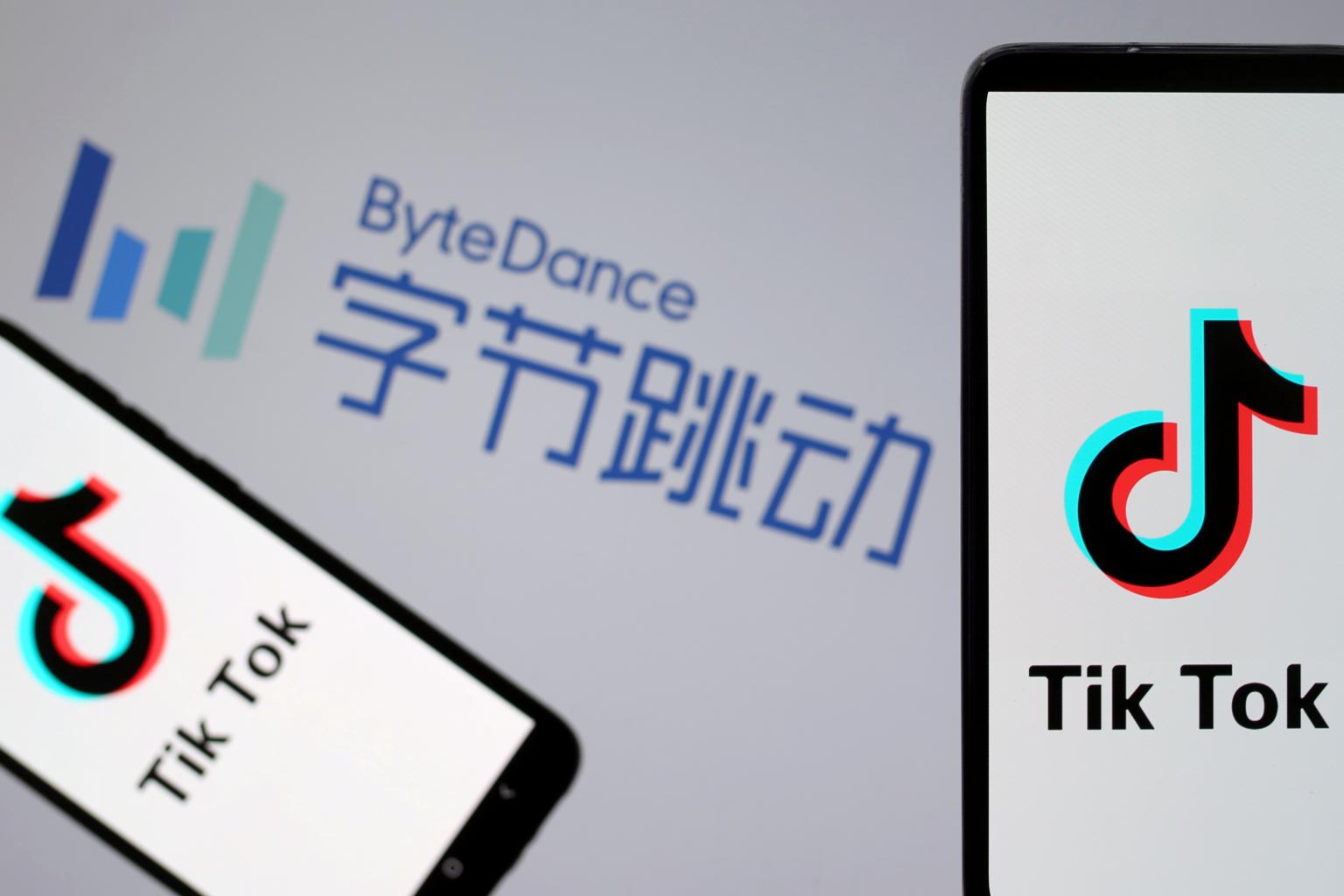TikTok owner ByteDance plans Google-like office tools as coronavirus spikes demand
Sign up now: Get ST's newsletters delivered to your inbox

ByteDance became the world's most valuable start-up on the strength of its viral consumer apps like TikTok.
PHOTO: REUTERS
HONG KONG (BLOOMBERG) - The maker of TikTok is preparing to roll out a Google-like suite of office collaboration tools as soon as this month, according to people familiar with the plans, as it works to expand beyond short video sharing.
ByteDance became the world's most valuable start-up on the strength of its viral consumer apps like TikTok and news aggregator Toutiao, but in April last year it quietly released a remote-work app called Lark (Feishu in China) that combined elements of Slack, Dropbox, Google Docs and Skype. Now the company is preparing an overhaul of the app with a focus on cloud-based file management and document and spreadsheet editing à la Google's G Suite. The rollout will begin in China, the people said, asking not to be named because the matter is private.
The global market for collaborative apps grew from US$14.8 billion (S$20.5 billion) in 2018 to $16.5 billion last year, according to IDC data. Even with strong incumbents like Microsoft and established players like Slack Technologies, it has room for growth and ByteDance has the added incentive of a sudden spurt in demand in its home market.
The Covid-19 outbreak has pushed millions of Chinese workers out of offices and into the realm of video conferencing, messaging and other online tools to keep business going. DingTalk from Alibaba Group Holding was the most downloaded free app on China's iOS App Store for weeks, followed closely by Tencent Conference. Though free to use, these apps help their parent companies keep users locked within their respective ecosystems, which is why Tencent Holdings is upgrading its work apps like WeChat Work in the present lockdown period, helping teachers as well as workers.
Just like its larger rivals, ByteDance has responded swiftly to soaring demand. In February, the company offered enterprise users its premium Feishu - which translates to "flying message" - functions for free during the outbreak. That helped it record a daily peak of more than 22,000 downloads on Apple's iOS App Store across China, according to Sensor Tower. The company also launched a standalone video conferencing app called Feishu Conference.
Though tiny compared to the leading firms, ByteDance's presence has been deemed a threat, at least by Tencent, which has reacted by blocking the sharing of links to Feishu on its super-app WeChat, just as it already does with ByteDance's mini-video platform Douyin, TikTok's Chinese twin.
ByteDance has taken a number of steps to diversify its revenue sources. It's testing the music-streaming waters with a service called Resso in emerging markets, is getting into search and has plans to launch a big push into mobile gaming with its own development studios this year. Collaborative apps are just another avenue promising long-term growth.
"The enterprise software market in China is lagging the US by at least 10 years. It has a long way to go in terms of market acceptance and willingness to pay," said Eric Ye, co-founding partner of Eminence Ventures, a Shanghai-based investment firm focused on the industry. "The Chinese giants want to do everything. If they have found one area where the business model is proven, everybody wants to get in on the act, copying and competing with each other."
ByteDance originally created Feishu-Lark as an internal tool, but the enterprise wing of its app factory is becoming instrumental to its bid to grow beyond consumer tech. The division now has a team of more than 1,700 people, led by vice president Xie Xin, who reports directly to chief executive officer Zhang Yiming, said the people familiar with its operations. While Feishu and Lark are run by separate legal entities - one in Beijing and the other in Singapore - and store user data separately, many staffers on Xie's team work on both projects, they said.
So far, Lark has only experienced modest traction in its biggest overseas markets including the US, Singapore and India. By focusing on the local China market first and targeting individual users, ByteDance will try to capture the latent demand in the country that's been catalyzed by the coronavirus, said the people familiar with its plans. It also won't have to compete with the original G Suite, which has the advantage of incumbency and billions of Google accounts that the Alphabet Inc. company can advertise to.
"We expect this kind of business to be heavily loss-making in the near term," said Ke Yan, a Singapore-based analyst with Aequitas Research. "Probably the market structure will eventually be oligopolistic and there will only be a few players left with the deep pockets for investment in infrastructure, software development and marketing."


